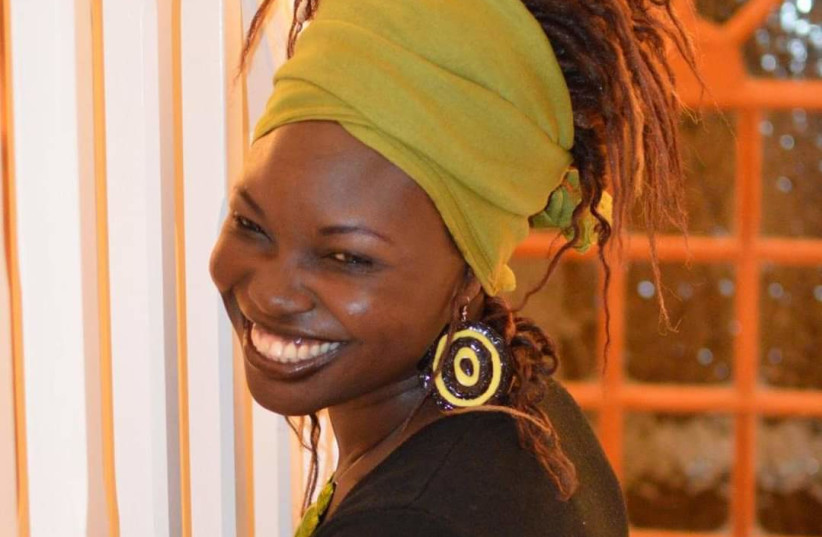Gemma-Tracee Apiku Hingley’s first memories take place in a refugee camp in South Sudan. During her childhood, she moved from camp to camp in South Sudan without a single memory of her motherland, Uganda.
For more stories from The Media Line go to themedialine.org
Today, Apiku Hingley is a dedicated humanitarian aid worker now living in Kenya. Having earned a master’s degree from Oxford Brookes University, she currently works at United Nations High Commissioner for Refugees (UNHCR, the UN refugee agency. She has traveled with the UN to Kenya, Jordan, Lebanon, and other countries in order to help refugees on the ground.
Annual World Refugee Day
On Tuesday, the UN’s annual World Refugee Day, Apiku Hingley is calling on universities and governments around the world to create more opportunities for refugees. By opening more pathways for refugees to study and work, countries can both support refugees and leverage their capabilities.
“There are so many talented, skilled refugees out there that countries and companies can benefit from,” she told The Media Line. “I think universities and institutions really should open up more doors of opportunity through scholarships for refugees.”

Apiku Hingley was born in Kampala, Uganda in 1979. Before her first birthday, a war broke out in Uganda and the country’s president was overthrown. Her family fled to South Sudan in search of refuge.
Uganda experienced a period of significant political turmoil in the late 1970s. President Idi Amin, who came to power in 1971, was declared president for life in 1976. Amin committed numerous human rights abuses during his time in power. In 1979, a coalition of rebel forces known as the Uganda National Liberation Army launched a successful military offensive against Amin’s government. The resulting power vacuum after the government was overthrown led to a violent atmosphere in Uganda with widespread social and ethnic tensions.
Apiku Hingley’s family was seen as government sympathizers because the family came from the same region as Amin and because Apiku Hingley’s father had served in the military.
“Anybody who was associated with the government was labeled as a bad person,” she explained.
As the violence escalated, the family fled to northern Uganda. There, too, they encountered problems. They decided to cross the border to South Sudan by foot. They would live there as refugees for the next eight years.
South Sudan did not have the infrastructure necessary to receive so many refugees, and the family ended up being moved from camp to camp. Apiku Hingley described a difficult life in the camps, especially when she was temporarily separated from her mother, who had gone to search for Apiku Hingley’s father after he was arrested.
The bitterness of life in the camps was made more tolerable by the education that Apiku Hingley received there. She recalled so-called schools in the camps that were simply “sitting under a tree and teachers coming in with a big blackboard.” Despite the lack of resources, school allowed Apiku Hingley to “forget all the dire situation and misery around the camps.” She was also able to learn English there.
Eventually, Apiku Hingley and her family returned to Kampala. She continued her education, eventually getting a bachelor’s degree in journalism. Later on, she decided to pursue humanitarian work and applied to a master’s degree program in the field at Oxford Brookes University.
While applying, she realized that she didn’t have the mandatory experience working with refugees and in nonprofits that the program requested. “I may not have the experience of working with refugees, but I lived it,” she told the school in her application. She was accepted to the program and moved to the UK in 2006.
After her studies, she started working at UNHCR. Her first deployment was to Kenya, after which she was sent to Jordan and Lebanon to work with Syrian refugees.
Today, Apiku Hingley focuses on helping refugees find “complementary pathways”—legal paths to permanent relocation other than official refugee resettlement, such as work visas and student visas. These opportunities can make a huge difference for refugees, she said.
“Education is life-changing,” she said. “Being a refugee does not make you any less, or less intelligent.” By receiving an education, refugees can obtain the resources they need to leverage their innate skills and intelligence that might otherwise be overlooked, she explained.
Being a refugee is an extremely difficult experience, Apiku Hingley said. “I had a very disrupted childhood, disrupted education, and it kind of impacts on you in different ways,” she recounted. “I lost the golden years of my childhood, didn’t have access to many things that normal children would have or be exposed to during their early years of life.”
At the same time, life as a refugee also shaped Apiku Hingley into the person she is today. “It made me more resilient in life and look at things from a different perspective,” she said.
